Work on setting carbon budgets for the agriculture sector has been paused as officials grapple with the implications of amendments made to the climate bill in the Seanad last Friday.
The key change made to the bill means that carbon removals from agriculture must now be taken into account.
Carbon removals allow the carbon emissions taken in by hedgerows, trees and crops to be deducted from the emissions produced. Carbon removals were not mentioned in the original text of the bill.
Under the new text, the definition of a carbon budget is the total amount of greenhouse gas emissions minus removals that are permitted during the budget period.
The amendment, proposed by Fine Gael senator Tim Lombard, was supported by 36 Fine Gael, Fianna Fáil and Green Party senators last Friday, 2 July.
A second amendment, proposed by Senator Paul Daly, Fianna Fáil Seanad spokesperson on Agriculture, outlines that a minister can meet his/her department’s carbon budget by the removal of greenhouse gas emissions.
Minister for the Environment Eamon Ryan has said he intends to accept both amendments, as well as two others related to the definition of climate justice.
Clear
However, speaking in the Seanad last Friday, he warned that “allowing for the removals does not remove the need to reduce emissions”, adding that “agriculture also has to play its part in real emissions reductions, not just removals and sequestration. That has to be abundantly clear.”
Minister Ryan said he would sit down with Minister for Agriculture Charlie McConalogue to “strike a good balance between emissions reductions and removals”.
“For the sake of Irish agriculture and farming, there have to be real and significant emissions reductions or else we will get caught in the cross hairs as the world starts to look at what is happening in Canada, for example, with people dropping dead from the heat,” Minister Ryan said.
“There has to be a reduction in methane, nitrous oxide, carbon dioxide and ammonia pollution.”
Overhaul
The last-minute Seanad amendments have caused consternation among Government officials, because it requires a total overhaul of how carbon budgets can be calculated.
The Climate Change Advisory Council (CCAC) has been working towards a mid-July target for giving Government its recommended national target for carbon emissions reduction, at which point the Government would set the carbon budgets for each of its departments.
The Irish Farmers Journal understands that experts are at loggerheads over whether the calculations for agriculture’s carbon budget should be based on a “gross net” or “net net” basis.
The “net net” calculation would take into account the effect of carbon removals through forestry, rewetting of peat soils, cover crops and straw incorporation.
The “gross net” calculation would include all the carbon being emitted by drained peatland soils.
The “net net” method would position Irish agriculture as a sink of 2m tonnes of carbon, while the “gross net” would have agriculture as a source of 4m tonnes.
Experts say the “net net” method is completely in line with Ireland’s European climate change commitments and the method that European NGOs (and Irish NGOs in the past) have favoured.
The bill will go through another stage in the Seanad on Friday 9 July and early next week.
Although at least one senator, Alice Mary Higgins, has said she intends to oppose the carbon removals amendment, it is expected to have plenty of support from the other senators.
It will then return to the Dáil, where it will be debated again by TDs.
The amended bill will be voted on in the Dáil on 15/16 July.
The expectation is that the amended bill will be approved by the Dáil in its final hours before the summer recess begins on 16 July.
What will happen the climate council’s Government target and carbon budgets for agriculture and other sectors is less clear.
As wrangling over the method of calculating carbon removals continues, the original date for mid-July for sectoral budgets now looks redundant.
Climate bill:
in their words
“The amendment gives due recognition of the volume of carbon we are tying up in our soils and hedgerows. It gives the recognition needed for the farming community to drive forward and to do more. Farmers have the ability and knowledge to do more.
“There are emissions coming from the agriculture sector but no other industry in the world can remove carbon. It is because of this that the recognition of the words “minus removals” is so important. The transport sector cannot remove carbon. It can reduce the volume produced but it cannot remove it.”
– Senator Tim Lombard,
Fine Gael
“The farmers of Ireland are the custodians of the land and the land, the hedgerows and the trees is the natural sequestration. We will be going forward sowing more trees and more hedgerows and wetting certain areas of our land, all for the good of the environment and the purposes of carbon sequestration and storage. It is vitally important that we include those figures and the farming community of Ireland are given credit for the good they are doing.”
– Senator Paul Daly,
Fianna Fáil
“There is a danger of double counting when you blend and muddy the waters around what part of this budget is removals and what part is emissions reduction. We have seen that in other countries. We need to reduce emissions and many of the actions such as re-wetting will be needed to reduce emissions. However, we cannot count it twice. Planting the same tree cannot be counted twice, as reducing emissions and representing a removal. That is a danger, if we are not clear.”
– Senator Alice Mary Higgins,
Independent
“[The amendments] give full recognition for carbon removals as part of the carbon budgets and sectoral targets.
“Despite strong engagement, we were disappointed that the minister accepted no amendments in the Dáil. In fairness to the Fine Gael and Fianna Fáil senators, amendments were put down and followed up, which have now been accepted by the Government. There are serious issues with the bill, particularly around the ‘distinct characteristics’ of biogenic methane, along with the need to avoid any international carbon leakage arising from the implementation of the bill.”
– Tim Cullinan, IFA president
“Polluting emissions from agriculture have to start coming down, immediately and substantially. There are not enough removals to avoid having to reduce polluting emissions and there never will be.
“Removals will be calculated on scientifically strict UN criteria and at the moment our land is a net emitter of pollution rather than absorbing pollution. I hope good land use planning will change that and our forests, peatlands and soils will indeed absorb more pollution than they emit in the future.”
– Oisin Coughlan,
Friends of the Earth
Work on setting carbon budgets for the agriculture sector has been paused as officials grapple with the implications of amendments made to the climate bill in the Seanad last Friday.
The key change made to the bill means that carbon removals from agriculture must now be taken into account.
Carbon removals allow the carbon emissions taken in by hedgerows, trees and crops to be deducted from the emissions produced. Carbon removals were not mentioned in the original text of the bill.
Under the new text, the definition of a carbon budget is the total amount of greenhouse gas emissions minus removals that are permitted during the budget period.
The amendment, proposed by Fine Gael senator Tim Lombard, was supported by 36 Fine Gael, Fianna Fáil and Green Party senators last Friday, 2 July.
A second amendment, proposed by Senator Paul Daly, Fianna Fáil Seanad spokesperson on Agriculture, outlines that a minister can meet his/her department’s carbon budget by the removal of greenhouse gas emissions.
Minister for the Environment Eamon Ryan has said he intends to accept both amendments, as well as two others related to the definition of climate justice.
Clear
However, speaking in the Seanad last Friday, he warned that “allowing for the removals does not remove the need to reduce emissions”, adding that “agriculture also has to play its part in real emissions reductions, not just removals and sequestration. That has to be abundantly clear.”
Minister Ryan said he would sit down with Minister for Agriculture Charlie McConalogue to “strike a good balance between emissions reductions and removals”.
“For the sake of Irish agriculture and farming, there have to be real and significant emissions reductions or else we will get caught in the cross hairs as the world starts to look at what is happening in Canada, for example, with people dropping dead from the heat,” Minister Ryan said.
“There has to be a reduction in methane, nitrous oxide, carbon dioxide and ammonia pollution.”
Overhaul
The last-minute Seanad amendments have caused consternation among Government officials, because it requires a total overhaul of how carbon budgets can be calculated.
The Climate Change Advisory Council (CCAC) has been working towards a mid-July target for giving Government its recommended national target for carbon emissions reduction, at which point the Government would set the carbon budgets for each of its departments.
The Irish Farmers Journal understands that experts are at loggerheads over whether the calculations for agriculture’s carbon budget should be based on a “gross net” or “net net” basis.
The “net net” calculation would take into account the effect of carbon removals through forestry, rewetting of peat soils, cover crops and straw incorporation.
The “gross net” calculation would include all the carbon being emitted by drained peatland soils.
The “net net” method would position Irish agriculture as a sink of 2m tonnes of carbon, while the “gross net” would have agriculture as a source of 4m tonnes.
Experts say the “net net” method is completely in line with Ireland’s European climate change commitments and the method that European NGOs (and Irish NGOs in the past) have favoured.
The bill will go through another stage in the Seanad on Friday 9 July and early next week.
Although at least one senator, Alice Mary Higgins, has said she intends to oppose the carbon removals amendment, it is expected to have plenty of support from the other senators.
It will then return to the Dáil, where it will be debated again by TDs.
The amended bill will be voted on in the Dáil on 15/16 July.
The expectation is that the amended bill will be approved by the Dáil in its final hours before the summer recess begins on 16 July.
What will happen the climate council’s Government target and carbon budgets for agriculture and other sectors is less clear.
As wrangling over the method of calculating carbon removals continues, the original date for mid-July for sectoral budgets now looks redundant.
Climate bill:
in their words
“The amendment gives due recognition of the volume of carbon we are tying up in our soils and hedgerows. It gives the recognition needed for the farming community to drive forward and to do more. Farmers have the ability and knowledge to do more.
“There are emissions coming from the agriculture sector but no other industry in the world can remove carbon. It is because of this that the recognition of the words “minus removals” is so important. The transport sector cannot remove carbon. It can reduce the volume produced but it cannot remove it.”
– Senator Tim Lombard,
Fine Gael
“The farmers of Ireland are the custodians of the land and the land, the hedgerows and the trees is the natural sequestration. We will be going forward sowing more trees and more hedgerows and wetting certain areas of our land, all for the good of the environment and the purposes of carbon sequestration and storage. It is vitally important that we include those figures and the farming community of Ireland are given credit for the good they are doing.”
– Senator Paul Daly,
Fianna Fáil
“There is a danger of double counting when you blend and muddy the waters around what part of this budget is removals and what part is emissions reduction. We have seen that in other countries. We need to reduce emissions and many of the actions such as re-wetting will be needed to reduce emissions. However, we cannot count it twice. Planting the same tree cannot be counted twice, as reducing emissions and representing a removal. That is a danger, if we are not clear.”
– Senator Alice Mary Higgins,
Independent
“[The amendments] give full recognition for carbon removals as part of the carbon budgets and sectoral targets.
“Despite strong engagement, we were disappointed that the minister accepted no amendments in the Dáil. In fairness to the Fine Gael and Fianna Fáil senators, amendments were put down and followed up, which have now been accepted by the Government. There are serious issues with the bill, particularly around the ‘distinct characteristics’ of biogenic methane, along with the need to avoid any international carbon leakage arising from the implementation of the bill.”
– Tim Cullinan, IFA president
“Polluting emissions from agriculture have to start coming down, immediately and substantially. There are not enough removals to avoid having to reduce polluting emissions and there never will be.
“Removals will be calculated on scientifically strict UN criteria and at the moment our land is a net emitter of pollution rather than absorbing pollution. I hope good land use planning will change that and our forests, peatlands and soils will indeed absorb more pollution than they emit in the future.”
– Oisin Coughlan,
Friends of the Earth



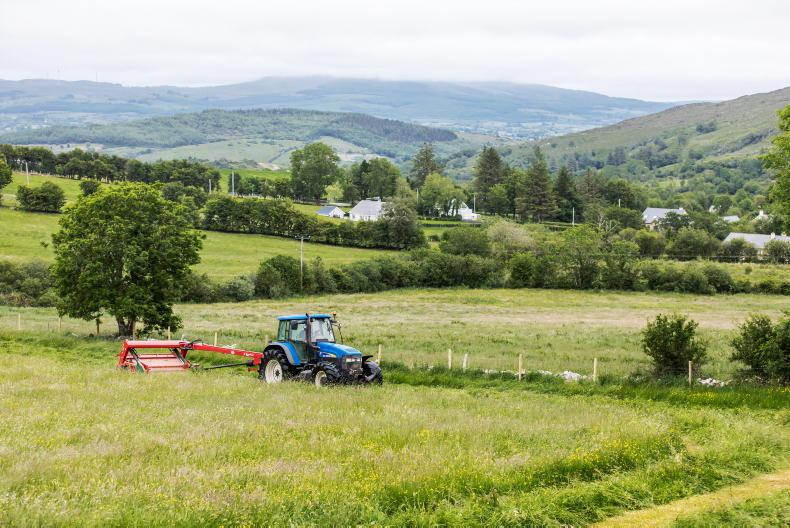

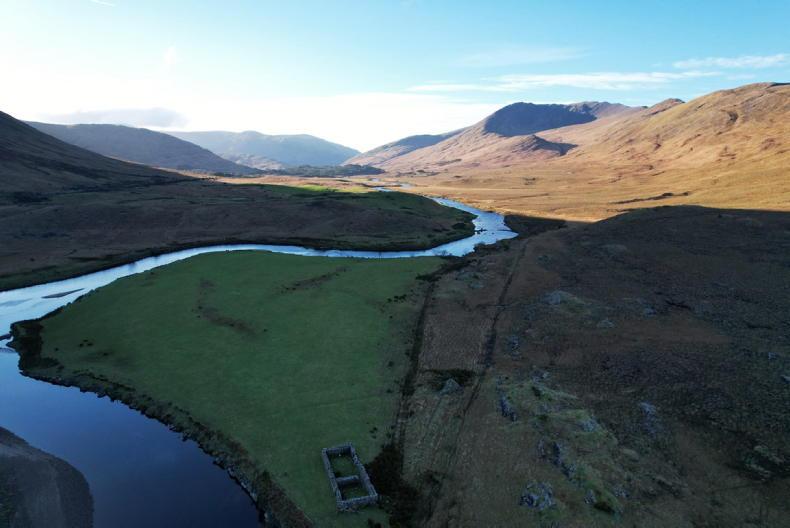
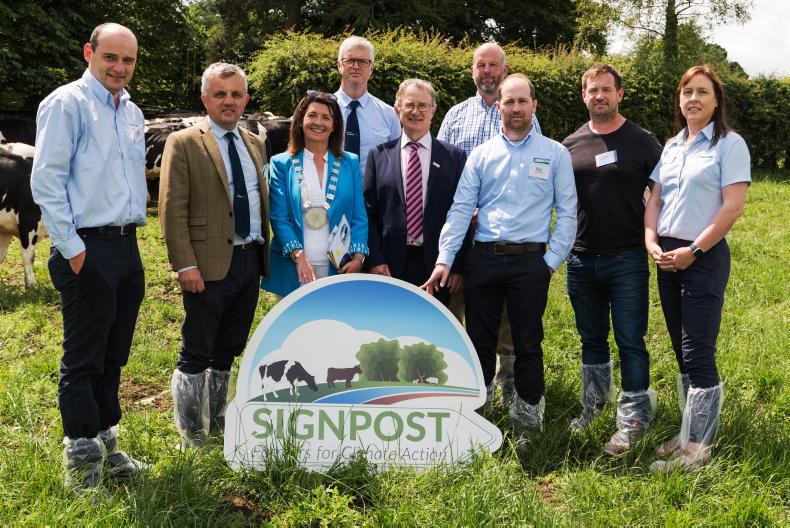
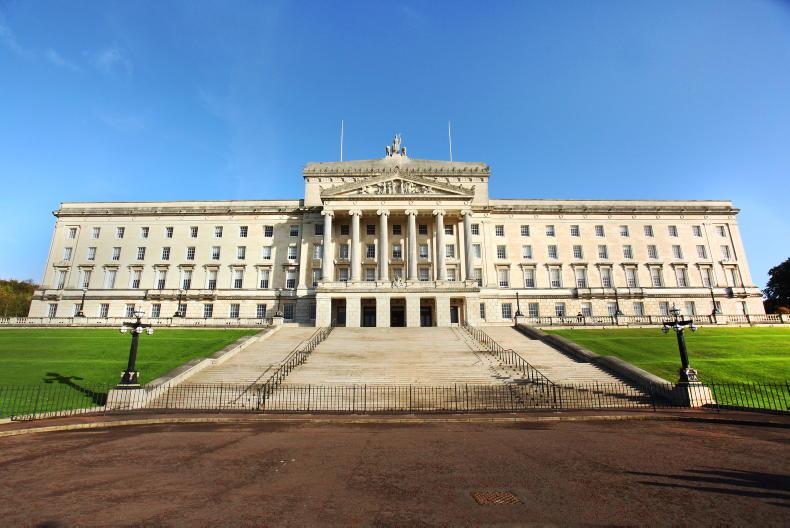
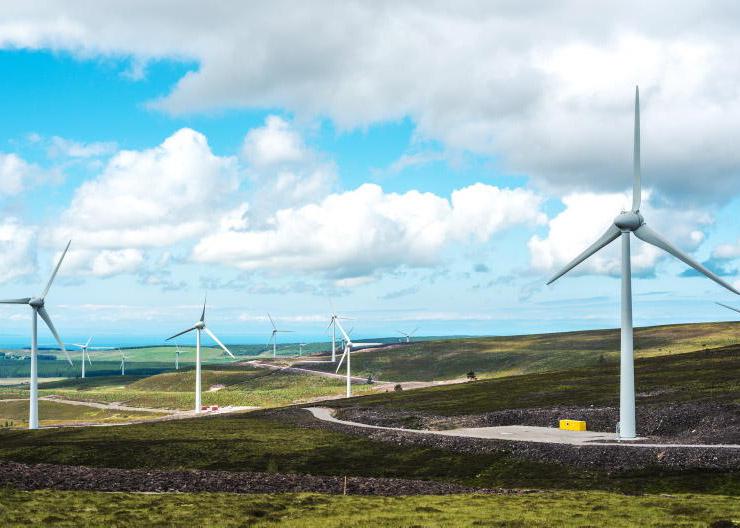
SHARING OPTIONS